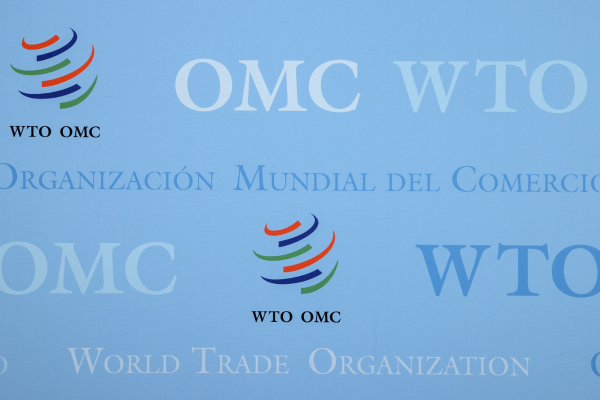Driving tangible value with ESG

Scott Lane at Speeki argues that, as ESG comes under fire, its survival depends on cross-function generalists -- not sustainability, governance, or diversity experts
Executives and business leaders throughout the corporate world are beginning to turn their backs on ESG and sustainability.
It’s a shift that’s been demonstrated on the global stage, with blue chip firms like BlackRock and Unilever rolling back their ESG and sustainability commitments.
At the root of this problem, is that ESG and sustainability have been mismanaged and are often in the hands of specialists with limited experience in the business world, treated as a venture not beholden to the broader commercial interests of the company
ESG and sustainability can survive the current crossfire. There is real value – socially, environmentally and financially – in ESG and sustainability, but not enough that it can afford to treat itself as being above making a profit for the business.
Executives need to bring on board cross-function generalists with proven business experience instead of relying solely on specialists with niche, ESG-specific knowledge. ESG and sustainability initiatives must be rigorously informed by business goals to be of value to the company and its shareholders – but in many instances, this just isn’t the case. So now that they’re under pressure, these initiatives and programs are on the chopping block
So, what’s applying the pressure to boards to drop ESG
Political attacks have been steadily building as opportunist politicians paint corporate ESG directives as part of a broader pernicious liberal agenda
ESG hasn’t been helped by several recent headline-making ‘greenwashing’ cases either. Just last year, the Deutsche Bank-owned asset manager DWS made international news after it was ordered to pay $19 million after making misleading statements about its ESG investments (Financial Times). Cases like this have been linked to declining confidence in ESG and sustainability strategies (Energy Monitor).
This souring political climate has only further been compounded by increasing economic pressure, especially heightened interest rates. As businesses and firms tighten their purse strings, this latter factor has become a principal driving force behind the ongoing exodus from ESG initiatives, commitments and directives
At the very core of it, ESG and sustainability are viewed, quite simply, as a bit of a money sink — and at a time when everyone is looking to tighten their belts.
ESG and sustainability initiatives are business decisions like any other: they need to be of quantifiable value, driving revenue and showing a tangible return on investment. But currently, in boardrooms around the world, executives are struggling to demonstrate what investment in ESG actually brings to the table.
So why isn’t ESG driving revenue for shareholders
It’s not that ESG is inherently unprofitable. In fact, time and again, it’s been shown that clients and customers value companies that operate in a sustainable and socially conscious way, with many going out of their way to use the services or products of businesses with strong ESG and CSR policies (McKinsey).
Instead, the fault lies in how businesses approach ESG and sustainability.
Too many companies view ESG and sustainability like an extracurricular activity; it’s something the business does because it looks good and does good – not because it benefits the business in any way.
This detachment of ESG from profit is a result of boards relying too heavily on sustainability, diversity and governance experts to take the charge on ESG
These experts are entrusted with the company’s ESG and sustainability programs and tasked with spearheading the business’ socially responsible activities. And while their deep knowledge and understanding of the core pillars of ESG are invaluable, such experts often come from an academic background, or are narrow sector specialists in one stream of the ESG spectrum, and lack wider business experience.
The result is a pervasive disconnect between a company’s ESG and sustainability commitments and its broader business interests and goals. Uninformed by the interests of the shareholders, the resulting ESG and sustainability programs often amount to little more than performative displays of ‘doing good’.
In order to have any sort of material effect on baseline revenue, ESG and sustainability policies need to be rigorously informed by the commercial and financial interests of the business – and to achieve this, ESG programs must be driven by leaders with proven cross-function experience across the realm of ESG and sustainability, as well as the wider business world.
By placing generalists with proven business experience at the helm of ESG and sustainability programs, businesses will see their policies take on a more well-rounded, financially informed approach. ESG and sustainability will be tackled with the interests of the shareholders in mind, the importance of generating some sort of tangible value for the business at the forefront of the agenda.
Their general business experience will ensure they’re comfortable leading projects, communicating the goals and intentions with C-suite executives and shareholders, and are up to date with industry trends, allowing the business to stay ahead of the curve without ESG and sustainability paying the price.
Appointing ESG leaders with broader business knowledge will see all corners of the C-suite involved in shaping the company’s ESG and sustainability strategy. ESG leaders will be able to collaborate with the CTO to deploy emerging tech to measure the impact of ESG and sustainability and work closely with the CEO to create a long-term, strategic vision for the business’ ESG and sustainability integration. Their business background will help them adapt business functions to the changing regulatory landscape of ESG and sustainability.
While businesses and firms should continue to consult with specialists and academics to ensure every policy decision is effective and well-informed, it’s clear that the chasm between ESG and sustainability and a company’s corporate values must be bridged – and generalists are the key to building it.
In the current economic climate, business ventures that underperform and underdeliver can expect to be cut. And if ESG and sustainability programs are set up in a way that will almost certainly see them fail to bring a return on investment, then they are destined to have their lifespan cut short.
Until executives begin to differ in their organisational approach to ESG and sustainability, ESG continues to be set up for failure.
Scott Lane is founder and CEO of Speeki
Main image courtesy of iStockPhoto.com and ATHVisions

Business Reporter Team
Most Viewed
Winston House, 3rd Floor, Units 306-309, 2-4 Dollis Park, London, N3 1HF
23-29 Hendon Lane, London, N3 1RT
020 8349 4363
© 2025, Lyonsdown Limited. Business Reporter® is a registered trademark of Lyonsdown Ltd. VAT registration number: 830519543





